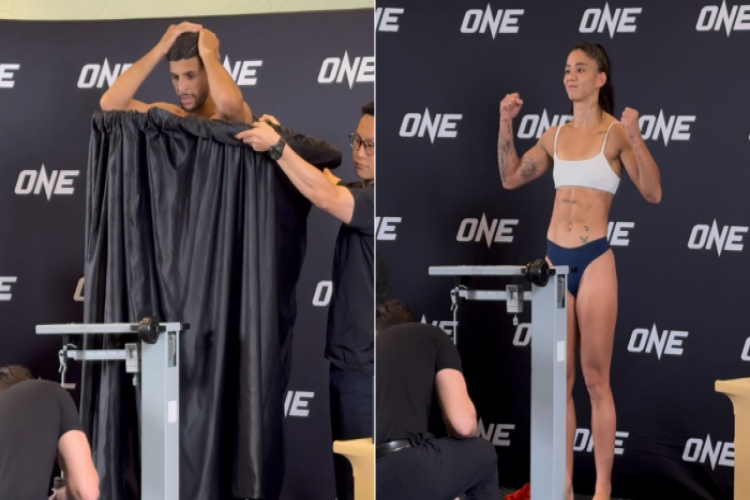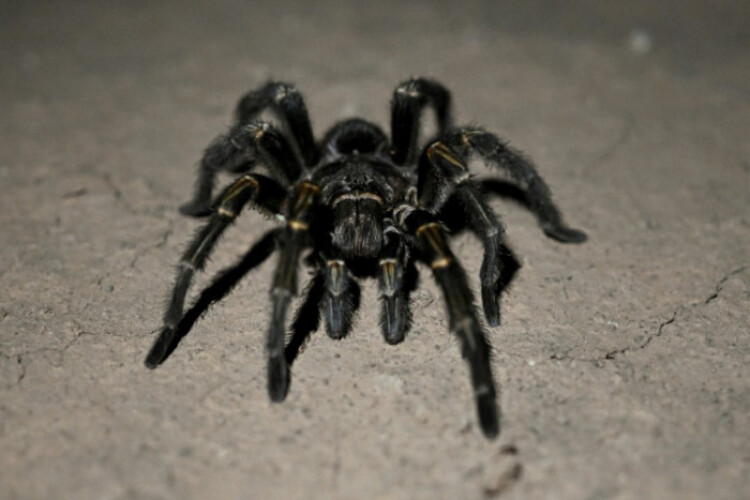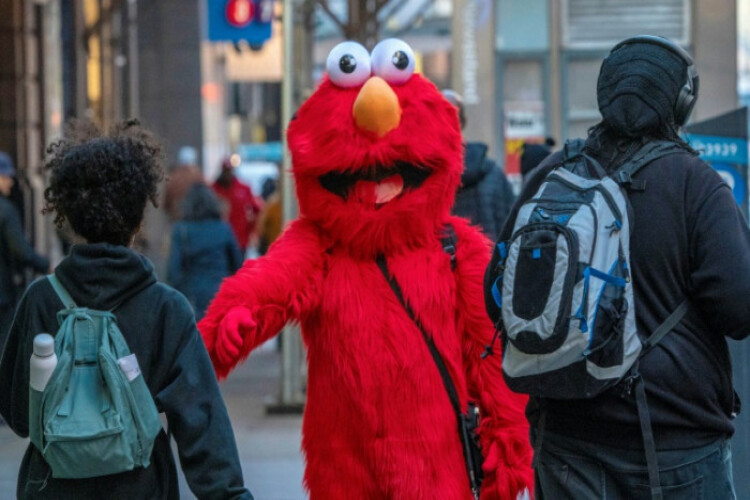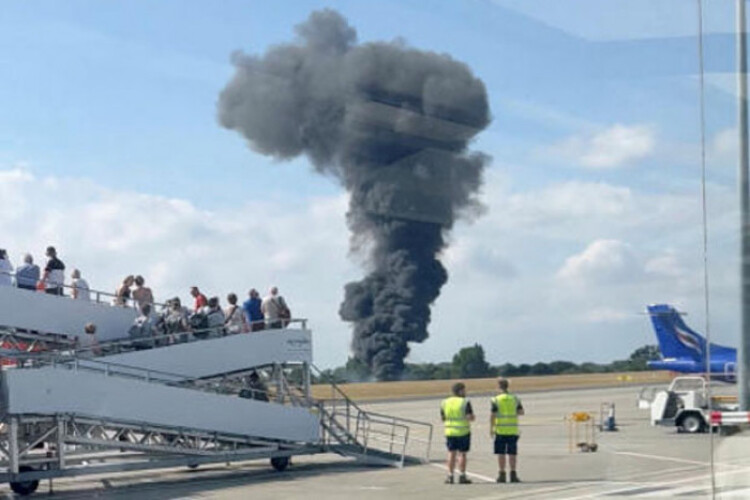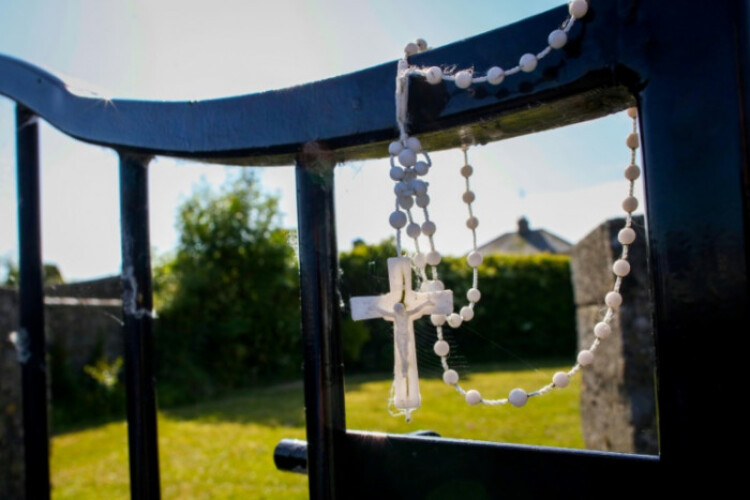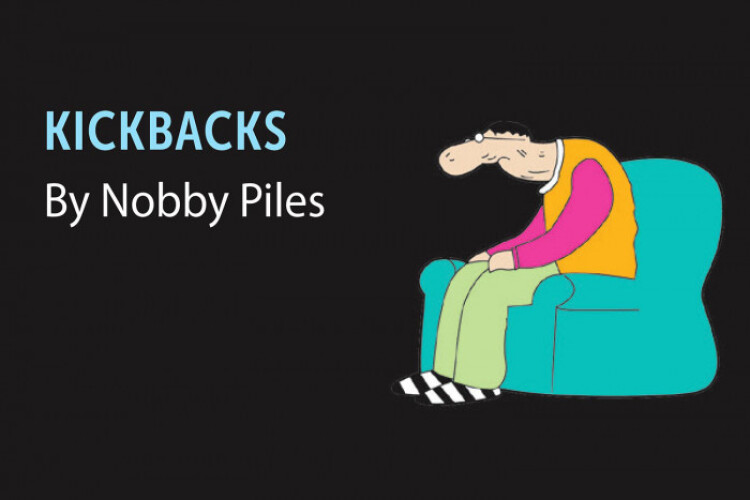
When the Leicester team came out onto the pitch at the King Power Stadium last Saturday it was good to hear they are still greeted by the stirring strains of the Post-Horn Gallop. It must be the most traditional piece of music to grace a football stadium in the English League and quite appropriate for a team nicknamed the Foxes.
Even more fitting is that the team were led out by the "Old Fox" himself, Jamie Vardy still knocking in the goals at the age of 37.
The music was composed by a German musician in 1844 and first heard at several English football stadiums in the early 20th century as it was felt the sound of the horns inspired the teams in a "tally-ho" sort of fashion.
Down on the South Coast at Brighton's Amex Stadium last week there were hearty renditions of Sussex By The Sea, a song that dates back to 1907 and used by several sports teams in Sussex. It sounds a bit old fashioned but when the crowd gets warmed up it all adds to the breezy support.
Also heard last weekend was Blue Moon, the song associated with Manchester City. Fans first started singing it in the 1988-89 season at the old Maine Road ground. The choice of song is believed to be inspired by the colour of their kit.
One of the most iconic songs associated with a football club is West Ham's club anthem, I'm Forever Blowing Bubbles. It has the added appeal that kids can blow soap bubbles any time they wish without being told off.
Some would say that the lyrics are particularly suitable for a team like the Hammers that often promise much but invariably don't deliver. As the lyrics inform us "They fly so high,/Nearly reach the sky/,Then like my dreams. They just fade and die."
The most plausible explanation for the song's links to West Ham is that as World War II approached in 1939 the Bubbles song had become a community singing favourite throughout Britain. When West Ham won the 1940 League War Cup Final at Wembley beating Blackburn 1-0, the Hammers fans sung the Bubbles song several times. Because it became associated with their success the song was adopted by the club.
A lot of clubs use pop songs from the past which have a catchy chorus the fans can sing along to. Thus we have the Beatles' Hey Jude (Brentford), Glad All Over by the Dave Clark Five (Crystal Palace), Jeff Beck's Hi Ho Silver Lining (Wolves), Mark Knopfler's Local Hero (Newcastle) and Paul McCartney's Mull of Kintyre (Nottingham Forest.) Another long-standing song which greets the Everton players every week is the Theme From Z-Cars, a popular TV police series in the 1960s.
Without doubt the most famous club song is Liverpool's You'll Never Walk Alone. The song, from the 1956 musical Carousel, became a big hit for the Merseyside group Gerry and the Pacemakers in 1963. Gerry Marsden presented a copy to the great Liverpool manager Bill Shankly and Liverpool fans went on to sing it at the 1965 Cup Final when they beat Leeds 2-1.
Marsden later said he never imagined what an impact the song would make, commenting, "Suddenly the Kop started singing it and it went all over the world."
Throughout the Football League each club has its adopted music which they hope can inspire players and fans. Although it might seem trivial it is important that the clubs maintain these musical traditions. Without them English football would be much poorer.
Even more fitting is that the team were led out by the "Old Fox" himself, Jamie Vardy still knocking in the goals at the age of 37.
The music was composed by a German musician in 1844 and first heard at several English football stadiums in the early 20th century as it was felt the sound of the horns inspired the teams in a "tally-ho" sort of fashion.
Down on the South Coast at Brighton's Amex Stadium last week there were hearty renditions of Sussex By The Sea, a song that dates back to 1907 and used by several sports teams in Sussex. It sounds a bit old fashioned but when the crowd gets warmed up it all adds to the breezy support.
Also heard last weekend was Blue Moon, the song associated with Manchester City. Fans first started singing it in the 1988-89 season at the old Maine Road ground. The choice of song is believed to be inspired by the colour of their kit.
One of the most iconic songs associated with a football club is West Ham's club anthem, I'm Forever Blowing Bubbles. It has the added appeal that kids can blow soap bubbles any time they wish without being told off.
Some would say that the lyrics are particularly suitable for a team like the Hammers that often promise much but invariably don't deliver. As the lyrics inform us "They fly so high,/Nearly reach the sky/,Then like my dreams. They just fade and die."
The most plausible explanation for the song's links to West Ham is that as World War II approached in 1939 the Bubbles song had become a community singing favourite throughout Britain. When West Ham won the 1940 League War Cup Final at Wembley beating Blackburn 1-0, the Hammers fans sung the Bubbles song several times. Because it became associated with their success the song was adopted by the club.
A lot of clubs use pop songs from the past which have a catchy chorus the fans can sing along to. Thus we have the Beatles' Hey Jude (Brentford), Glad All Over by the Dave Clark Five (Crystal Palace), Jeff Beck's Hi Ho Silver Lining (Wolves), Mark Knopfler's Local Hero (Newcastle) and Paul McCartney's Mull of Kintyre (Nottingham Forest.) Another long-standing song which greets the Everton players every week is the Theme From Z-Cars, a popular TV police series in the 1960s.
Without doubt the most famous club song is Liverpool's You'll Never Walk Alone. The song, from the 1956 musical Carousel, became a big hit for the Merseyside group Gerry and the Pacemakers in 1963. Gerry Marsden presented a copy to the great Liverpool manager Bill Shankly and Liverpool fans went on to sing it at the 1965 Cup Final when they beat Leeds 2-1.
Marsden later said he never imagined what an impact the song would make, commenting, "Suddenly the Kop started singing it and it went all over the world."
Throughout the Football League each club has its adopted music which they hope can inspire players and fans. Although it might seem trivial it is important that the clubs maintain these musical traditions. Without them English football would be much poorer.




